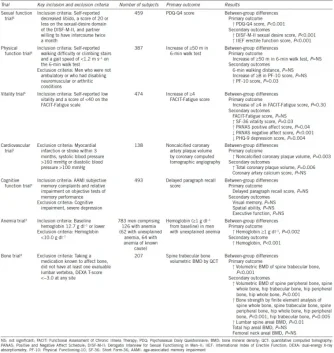Nelson Vergel
Founder, ExcelMale.com
In a series of randomized controlled trials published in JAMA and JAMA Intern Med, US researchers have examined the effect of testosterone treatment in older men with testosterone levels <275 ng dl−1 on coronary artery plaque volume,[1] cognitive function,[2] anemia,[3] and volumetric bone density.[4] While the trials have shown positive results with respect to improvement in anemia and bone density, longer-term studies are required to delineate the long-term risks and benefits in this population.
Testosterone levels in men decrease with age. However, previous trials examining the effect of testosterone treatment have produced equivocal results. A panel at the Institute of Medicine of the National Academy of Science, therefore, recommended a set of clinical trials to determine the benefits of testosterone replacement on symptoms and age-associated conditions in this population. The Testosterone (T) Trials were a coordinated series of seven double-blind, placebo-controlled trials (RCT) conducted at 12 academic centers in North America designed to answer this question.[5]

Source
Testosterone levels in men decrease with age. However, previous trials examining the effect of testosterone treatment have produced equivocal results. A panel at the Institute of Medicine of the National Academy of Science, therefore, recommended a set of clinical trials to determine the benefits of testosterone replacement on symptoms and age-associated conditions in this population. The Testosterone (T) Trials were a coordinated series of seven double-blind, placebo-controlled trials (RCT) conducted at 12 academic centers in North America designed to answer this question.[5]

Source













